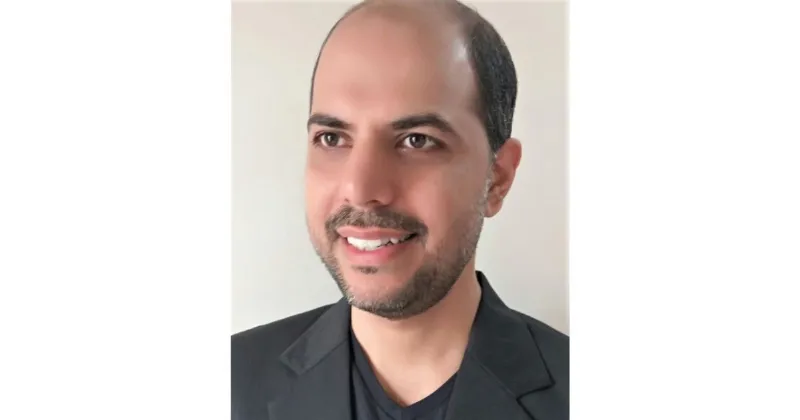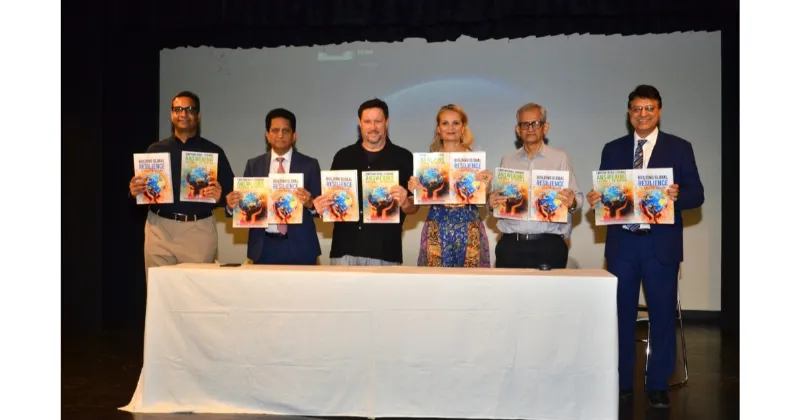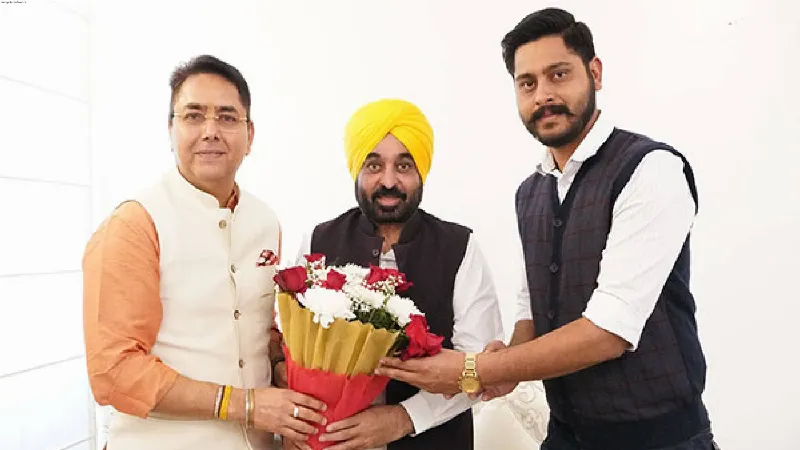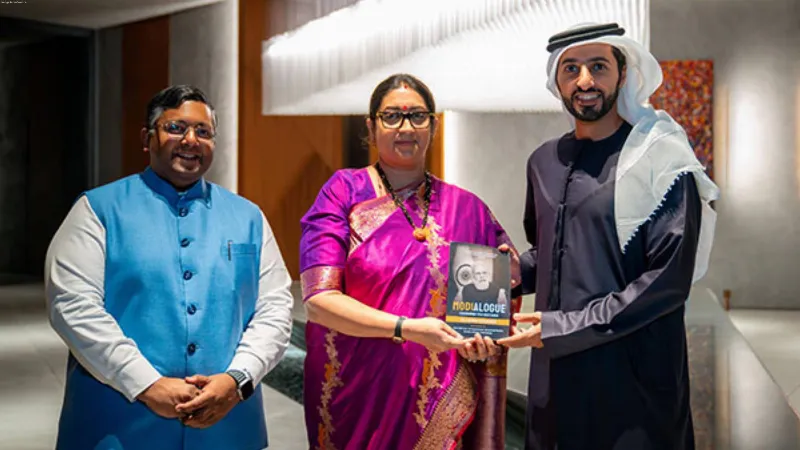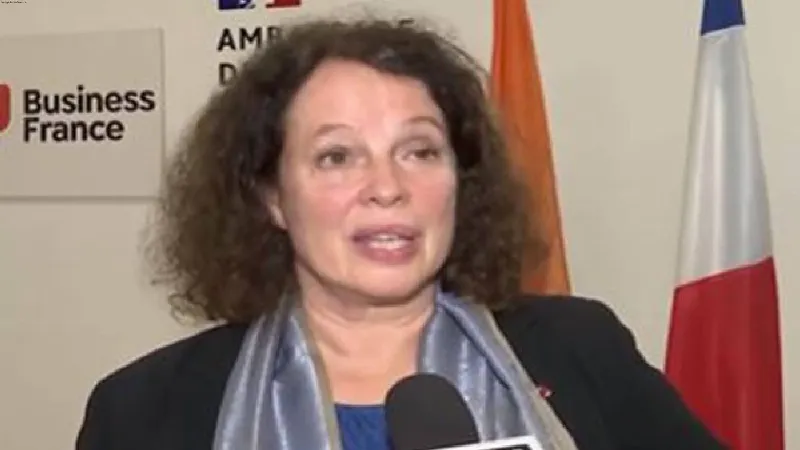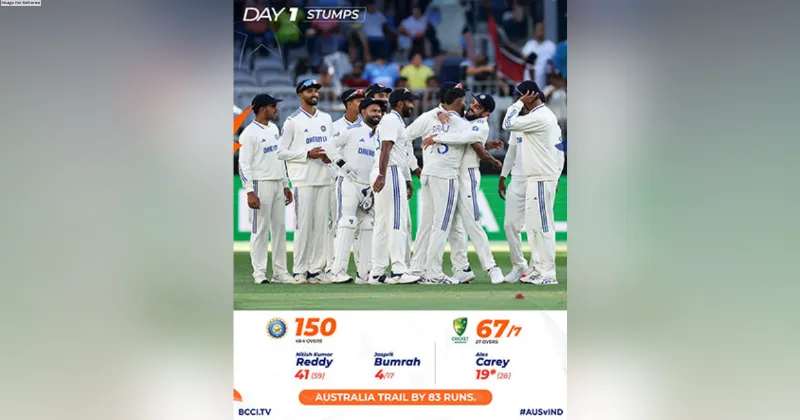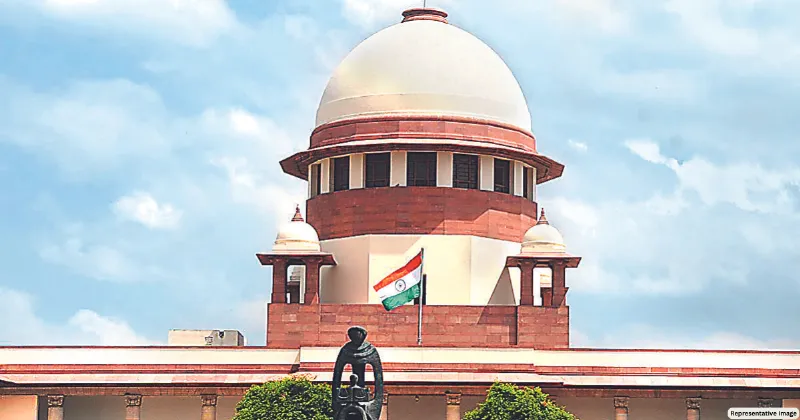Women’s Health Day - Top 10 Gynaecologists Advice on Rising issue of Infertility Rate

New Delhi: On this Women's Health Day, we embark on a journey that explores the profound impact infertility has on countless women and couples worldwide. The longing for a child, an innate desire to nurture and create life, can become a formidable emotional burden when fertility struggles arise. However, with advancements in medical science, particularly in the realm of in-vitro fertilization (IVF), there is renewed hope for those yearning to embrace the joys of parenthood.
Dr. Ankesh Sahetya, MB, DNB, DGO, MNAMS, FALS, FICOG, Obstetrician & Gynaecologist & Sexologist & Endoscopic Surgeon, Pushpaa Hospital & Brillianz Fertility Centre, Mumbai
Approximately 13% of couples experience difficulty conceiving when the woman is 30 years old or younger. The primary factor contributing to this decline in fertility with age is the diminishing quality of a woman's eggs as she gets older. Furthermore, since women are born with a finite number of eggs, older women naturally have a reduced egg supply. The ageing process also increases the likelihood of miscarriage and the potential for genetic conditions in offspring. Couples may face additional obstacles in achieving pregnancy if the male partner is over 40 years old. Moreover, research suggests that men over 40 may experience a decline in sperm quality, leading to an increased risk of genetic abnormalities in their children. Prolonged exposure of men's genitals to heat, such as a frequent sauna or hot tub use, can have a temporary impact on sperm production. Additionally, both men and women may experience fertility issues due to radiation exposure.
Dr. Monika Agrawal, DNB, DGO Consultant at Her Care Clinic, Criticare Hospital and Visiting Consultant at Surya Hospital, Mumbai
Pregnancy is a divine experience for every woman. However, the unfortunate reality is that infertility affects 15% of couples nowadays. The rise in infertility can be attributed to various factors, including the widespread prevalence of PCOD, women giving birth at an older age, which impacts the quality of their eggs, and unhealthy lifestyle choices such as smoking, excessive alcohol consumption, and high-stress levels, which negatively affect fertility for both men and women. Busy lifestyles often result in infrequent intercourse, while the desire for quick results can lead to anxiety, hindering natural conception. To increase the chances of successful conception, steps can be taken, such as maintaining a healthy lifestyle, planning for pregnancy at an early age, improving sexual life, digital detox, getting enough sleep, seeking preconception counselling, and scheduling regular check-ups to address any fertility-affecting infections. Remember, fertility is unique to each individual, so consulting with a fertility specialist for personalized advice is crucial. Always choose hope, as it can make anything possible.
Dr. Jyoti Bali, Medical Director - BabySoon Fertility & IVF Centre, Delhi
As a reproductive medicine specialist, Dr. Jyoti Bali is dedicated to supporting women on their path to parenthood. Factors like delayed childbearing or difficulty finding the right partner can influence this decision. Oocyte freezing presents an opportunity for women to preserve their fertility and take control of their biological clock. Stressing the importance of a healthy lifestyle, including a minimum of eight hours of sleep per night and limiting gadget use, is crucial as it can potentially impact fertility. Additionally, it is advisable for men to keep their mobile phones in their shirts instead of trousers to reduce prolonged radiation exposure near reproductive organs, which may have adverse effects on fertility.On Women's Health Day, Dr. Jyoti Bali encourages women to prioritize nutrition, recognizing its vital role in reproductive health. A well-balanced, nutrient-rich diet is essential for increasing the chances of conception and overall well-being. Through her commitment to empowering women, providing guidance, and offering personalized solutions, Dr. Jyoti Bali helps women achieve their desired family goals while making informed decisions about their reproductive health.
Dr. Richa Singh,Medical Director, Urvara Fertility Centre (Lucknow), (MBBS, DNB OBS & GYNE), DRM (Germany), FRM (Gujarat), Hysteroscopy Specialist (Dubai), Laparoscopy Specialist (AIIMS), Delhi
Rising infertility is a pressing concern these days, with approximately one in six couples facing conception difficulties, primarily affecting women. However, with awareness and early screenings, many cases can be prevented. Women must prioritize their health, focusing on factors like fitness, healthy eating, adequate sleep, and weight management. Additionally, they should avoid unnecessary delays in planning pregnancy, considering that their biological clock is ticking. Balancing careers and family planning can be challenging, but consulting a fertility expert and undergoing baseline tests can aid in informed decision-making for couples approaching 30 years of age. For those not yet ready for conception, freezing embryos (for married couples) or eggs (for unmarried individuals) offer future fertility preservation options. Women aged 30-35 should be particularly vigilant due to declining egg reserves. Women over 40 should discuss with experts about options like Preimplantation Genetic Testing through IVF to mitigate risks of chromosomal abnormalities. Increasing awareness and taking proactive steps will contribute to improving women's health and combating infertility concerns.
Dr. Sandeep Talwar, Senior Consultant - Nova- Southend Fertility Clinic, New Delhi
Fertility Rate in India: Concern
The total fertility rate in India has been steadily declining. It was 6 births per woman which has fallen to 1 in 2023 – A 0.93% decline since 2022. The reasons for the decline are the rise in education, economy, contraception, etc. More women are postponing marriage & family due to rising education & going actively to work. Hence there is a need to think about “Social” egg freezing in women wanting to delay planning a family &childbirth. With egg freezing, fertility is preserved as the same frozen eggs can be utilised to plan a pregnancy at a later age giving a chance for a biological child of the intending couple. Corporations are even funding egg freezing through IVF(In-vitro-fertilisation), or it is self-funded by women themselves.
Dr. Neha Jain, Senior Consultant Gynecologist &Obstetrician, Infertility specialist, Dr.Jain's Bliss and Bless Women’sHealth Clinic & Dr.Jain's Path Lab, Delhi
On this Women's Health Day, it is crucial to address the rising issue of declining fertility rates among women. As a doctor, I am deeply concerned about the impact this trend has on women's overall health and well-being. Fertility is not just a matter of reproduction; it encompasses various aspects of a woman's physical, emotional, and social life. Decreased fertility rates can be influenced by several factors, including lifestyle choices, stress, environmental factors, and delayed childbearing. It is essential for women to understand the implications of declining fertility and seek appropriate medical guidance and support. By raising awareness and providing comprehensive reproductive health care, we can empower women to make informed decisions about their fertility and take proactive steps to protect and optimize their reproductive potential. Let us work together to ensure that every woman has the opportunity to achieve her reproductive goals while maintaining good health.
Dr. Ila Gupta, Director & IVF Specialist, Ferticity IVF & Fertility Clinics, Delhi
Addressing the rising issue of infertility requires a holistic approach that considers lifestyle factors and their impact on reproductive health. By making positive changes in smoking and alcohol consumption, adopting a healthy diet, reducing exposure to pollutants, staying physically active, managing stress, and prioritizing mental well-being, individuals can enhance their fertility potential. Couples struggling with infertility should seek professional assistance from a qualified reproductive specialist or gynaecologist. Through comprehensive evaluations and diagnostic tests, healthcare providers can identify the root causes of infertility and develop personalized treatment plans. As a gynecologist, I remain committed to assisting individuals and couples in their journey towards parenthood, providing compassionate care and comprehensive solutions to address the challenges of infertility.
Dr. Richika Sahay, Director & co-founder of India IVF Fertility, Delhi
The escalating infertility rate is, paradoxically, a by-product of our economic progress and social empowerment, as career-focused lifestyles often delay family planning. Our society is increasingly indulging in behaviours such as increased consumption of alcohol, caffeine, junk food, and the use of certain cosmetics. Moreover, the rising stress levels, changing sexual behaviours, smoking, and our predominantly sedentary lifestyles are also contributing factors. It's a complex problem, but awareness is the first step towards a solution. Let us collectively promote Holistic healthier lifestyles and informed choices, emphasizing the importance of balance in our fast-paced lives for the sake of future generations. Considering the option of freezing your eggs or sperm as an insurance policy for your future family plans. It allows individuals to preserve their fertility, which is especially useful for those focusing on career growth or those undergoing medical treatments which might impact fertility. After all, fertility preservation today could open the door to parenthood tomorrow.
Dr. Mayur Dass, MBBS, DGO, DNB Senior Consultant Obstetrician and Gynaecologist - Cloudnine Hospital Patparganj, Visiting Consultant at Max Hospital Patparganj, Director- Dr Varshney Clinic, Vasundhara Enclave, Delhi
Addressing the growing problem of diminishing reproduction rates is essential on this Women's Health Day. The effect that this tendency will have on women's health worries me much as a doctor. Age, lifestyle decisions, stress, and underlying medical issues are just a few of the variables that might contribute to decreased fertility rates. It is crucial to raise awareness of the value of reproductive health and the options available to female infertility patients. Maintaining fertility requires maintaining a healthy weight, living a balanced lifestyle, and getting regular check-ups. Education about methods for preserving fertility, including egg freezing, can also provide women with the power to decide for themselves how they want to proceed with their future pregnancies. We can make sure that women get the assistance and tools they need to maintain their reproductive health and accomplish their intended family planning goals by focusing on the growing issue of declining fertility rates.
Dr. Manjiri Kawde - Best Laparoscopic Surgeon for Fibroids, Uterus removal, Prolapse, Water Birth Delivery Doctor, Beams Hospital Khar, Mumbai
The age of marriage today is in the late twenties or early thirties. Couples then willingly delay childbirth. The advanced age of the mother, ageing of gametocytes, oxidative stress of the ovum or sperm and lack of micronutrients due to improper food habits and sleep patterns become hurdles that delay fertility. All become hurdles, and Availing of the fertile period is also a challenge for working couples.
Hormonal disturbances do not favour implantation. Teenage repeated miscarriages or pelvic infections due to a lack of use of condoms add to the delay of fertilisation after marriage. Advice for couples would be to reduce stress, use a fertilisation period at least, take folic acid supplements and take micronutrient supplements. Whenever documented ovarian reservoirs are falling, or the semen count is dropping, then antioxidant (melatonin, arginine) energizers like COQ, lycopene, zinc, lecithin, chest berries and Vit-C, cod liver oil should be taken.







